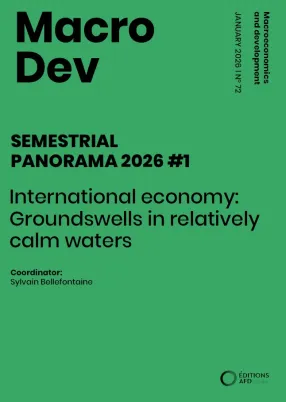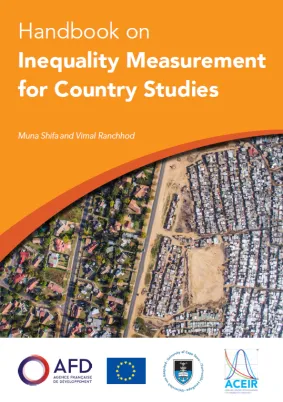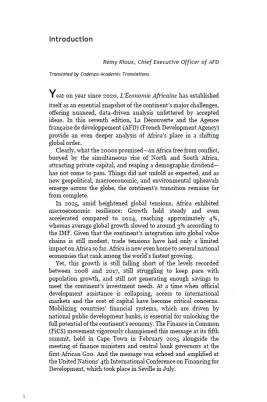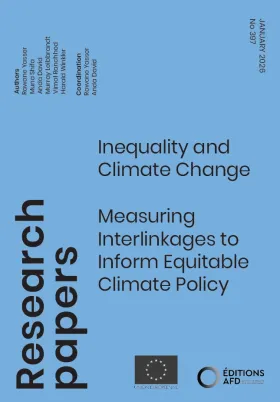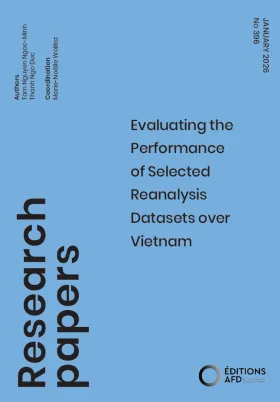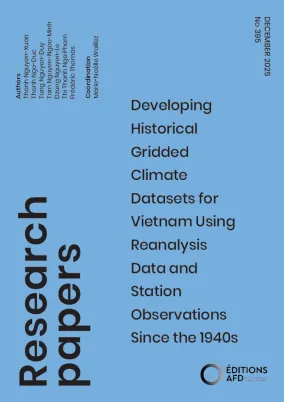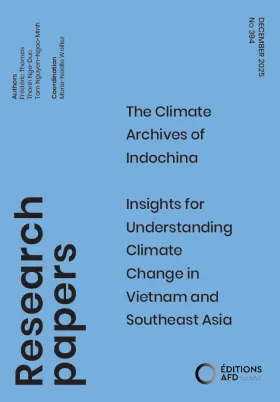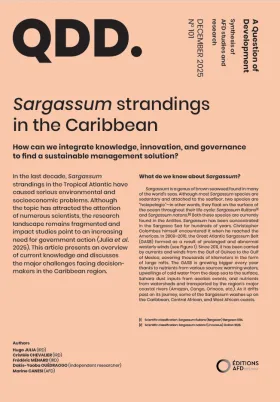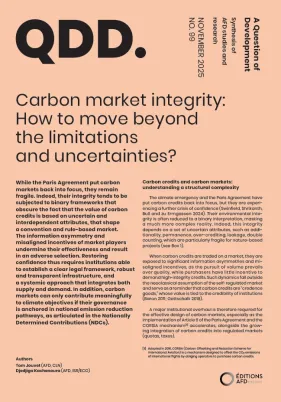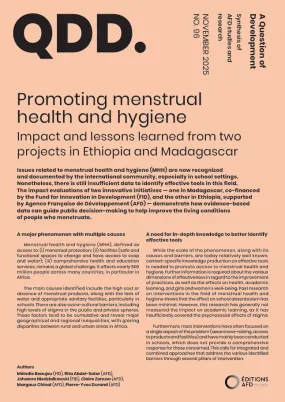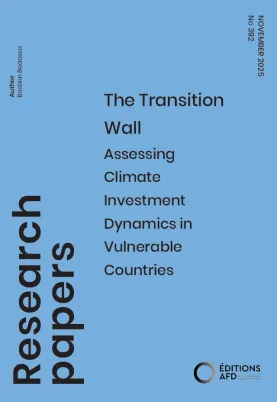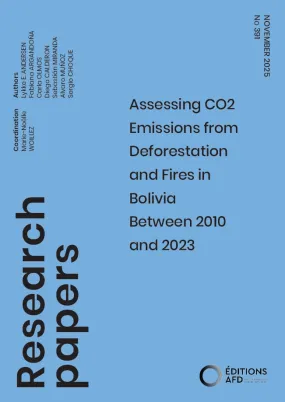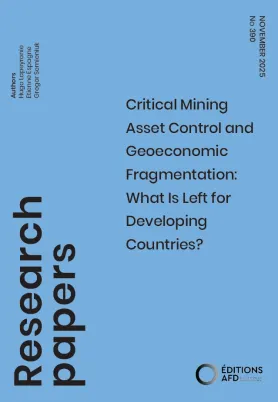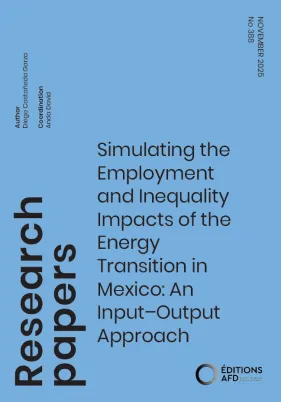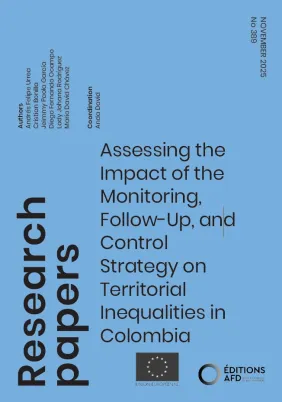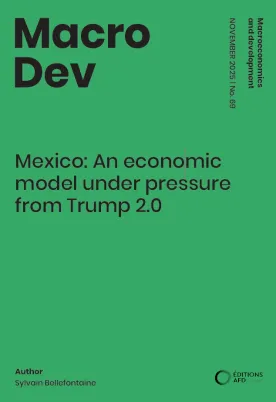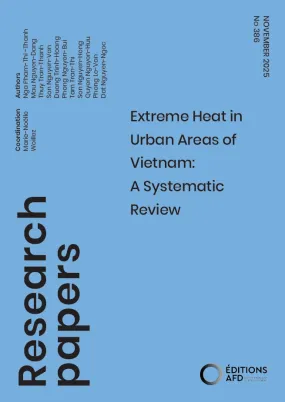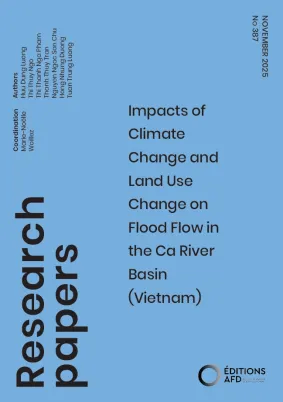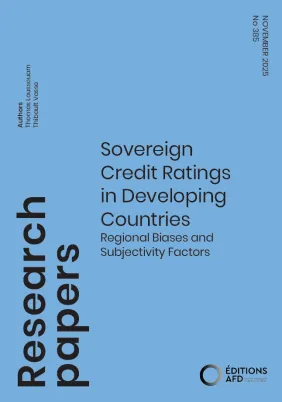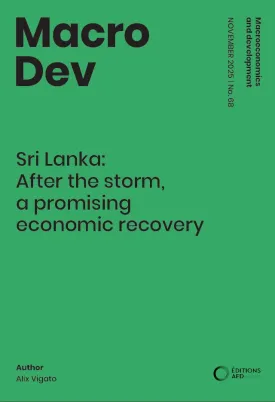Publications and media
International economy: Groundswells in relatively calm waters
Amidst a geopolitical environment undergoing reconfiguration, many economic paradigms once thought to be immutable are now shifting before our eyes. This paper aims to provide a brief overview of them...
Handbook on Inequality Measurement for Country Studies - Updated version
Writing a country level study on inequality can be an intimidating task for researchers. How does one begin to conceptualize such a study? What needs to be included? What sorts of analyses are require...
Published on
L'économie africaine 2026: English version of Introduction & 1st Chapter
Year on year since 2020, L’Économie Africaine has established itself as an essential snapshot of the continent’s major challenges, offering nuanced, data-driven analysis unfettered by accepted ideas....
Inequality and Climate Change Measuring Interlinkages to Inform Equitable Climate Policy
The interlinkages between climate change and socioeconomic inequality are increasingly acknowledged, yet analytical frameworks and empirical tools that jointly address these dimensions remain limited....
Evaluating the Performance of Selected Reanalysis Datasets over Vietnam
Vietnam, a country highly exposed to extreme weather events, still struggles to fill in significant gaps in its historical meteorological records, limiting a comprehensive understanding of past climat...
Developing Historical Gridded Climate Datasets for Vietnam Using Reanalysis Data and Station Observations Sinc...
Accurate and high-resolution gridded climate data are crucial for scientific applications, yet such data have long faced limitations due to sparse and uneven station networks. In this study, we addres...
The Climate Archives of Indochina - And their contribution in understanding climate change in Vietnam and Sout...
This article presents a new historical climate database called Climate data rescue of Vietnam, Cambodia, and Laos. It covers the period from 1867 to 1973. The oldest data were produced by military ho...
Sargassum strandings in the Caribbean - How can we integrate knowledge, innovation, and governance to find a s...
Although of natural origin, Sargassum has proliferated under the combined effects of climate change—warming waters, increased nutrient inputs, and altered ocean currents. The phenomenon has expanded a...
Published on
Carbon market integrity: How to move beyond the limitations and uncertainties?
Carbon markets are expanding rapidly, driven by net-zero commitments and the rise of compliance mechanisms. Yet their environmental integrity remains fragile: information asymmetries, over-crediting,...
Promoting menstrual health and hygiene Impact and lessons learned from two projects in Ethiopia and Madagascar
Menstrual health and hygiene is a global issue affecting nearly 500 million people. Despite being on the international agenda, there is still a lack of data to identify effective levers for promoting...
At the gates of Europe: Albania faces the challenge of convergence
After 45 years of isolation under a totalitarian communist regime headed by the Party of Labor of Albania (1944-1991), in the early 1990s, Albania engaged in a profound transition marked by considerab...
The transition wall: Assessing climate investment dynamics in vulnerable countries
Some developing economies are approaching what can be described as a “transition wall” – a situation in which they are highly vulnerable to climate change and nature loss, yet unable to mobilize the i...
Assessing CO2 Emissions from Deforestation and Fires in Bolivia Between 2010 and 2023
This study estimates net annual CO2 emissions from deforestation and fires in Bolivia from 2010 to 2023, considering both gross emissions and absorptions resulting from land clearing, land use change,...
Critical Mining Asset Control and Geoeconomic Fragmentation: What Is Left for Developing Countries?
The green economy offers major development potential through climate-focused goods, but access to critical minerals is essential. Developing countries are often limited to supplying raw materials and...
Simulating the Employment and Inequality Impacts of the Energy Transition in Mexico: An Input–Output Approach
This paper examines the distributive and labor market impacts of Mexico’s transition from fossil fuels to renewable energy using a multisector input–output model calibrated to the 2020 national accoun...
Assessing the Impact of the Monitoring, Follow-Up, and Control Strategy on Territorial Inequalities in Colombi...
This article analyzes the Monitoring, Tracking, and Control Strategy (EMSC) of Colombia's General System of Participations (SGP) as an instrument for reducing territorial gaps in key sectors such as e...
Mexico: An economic model under pressure from Trump 2.0
President Claudia Sheinbaum, inaugurated in October 2024, is facing a number of major internal and external challenges. Tensions with the United States (trade, migration, drug trafficking) have added...
Extreme Heat in Urban Areas of Vietnam: A Systematic Review
This study provides a systematic review of scientific and grey literature, in both english and vietnamese, on extreme heat in Vietnam’s urban areas. It assesses the current state of knowledge on this...
Impacts of Climate Change and Land Use Change on Flood Flow in the Ca River Basin (Vietnam)
The Ca River Basin, one of the largest transboundary basins in Viet Nam, located in the North Central region, regularly faces large flood events causing great damage to people’s lives and livelihoods....
Sovereign Credit Ratings in Developing Countries Regional - Biases and Subjectivity Factors
Sovereign credit ratings play a critical role in the international financial system and have a tangible impact on countries’ fiscal, economic, and development trajectories. Nevertheless, the activity...
Sri Lanka: After the storm, a promising economic recovery
An island nation in the Indian Ocean, since 2019, Sri Lanka has been experiencing the most severe economic crisis in its post-independence history. The country was for a long time held up as an exampl...

